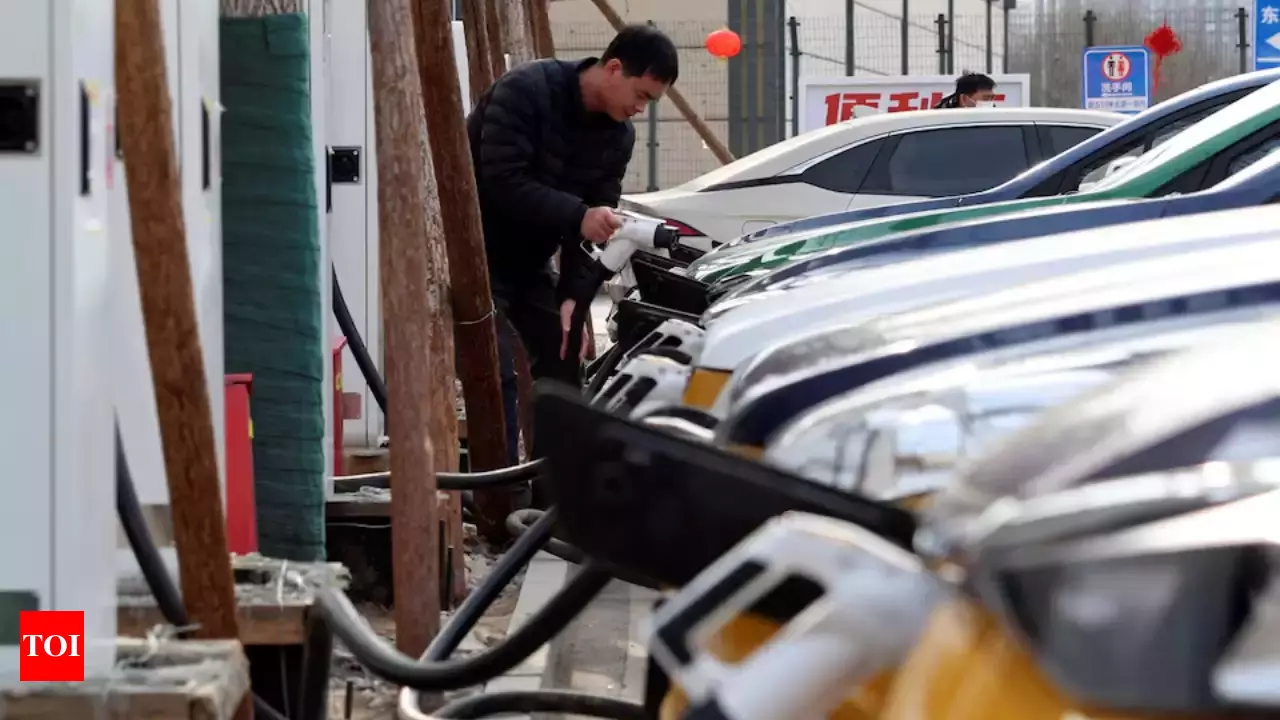Infra
EV Industry Requests Incentives, Infrastructure Funds, and Tax Rationalization in Upcoming Budget – Times of India

As Finance Minister Nirmala Sitharaman prepares for the Union Budget 2024-25 on July 23, the electric vehicle (EV) sector is hopeful for measures that could drive industry growth.
The EV sector is at a crucial stage, with each player vying for market share. The industry expects the government to introduce FAME-3, allocate funds for charging infrastructure, provide incentives for localizing EV components, integrate EVs with renewable energy sources, implement a priority lending scheme, and reduce GST on EV services.
Aryaman Tandon, Managing Partner at Praxis Global Alliance, emphasized the need for government support to achieve the 30 percent EV penetration target by 2030. He noted that government assistance is essential to make EVs more affordable and close the price gap with internal combustion engine vehicles.
Nimish Trivedi, Founder & CEO of Evera, highlighted the impact of government subsidies under schemes like FAME-II, which led to a 48 percent increase in EV adoption in 2023. He stressed the importance of continuing FAME to sustain this growth.
The FAME India Scheme, introduced in 2015, aims to promote electric and hybrid vehicles and has completed two terms: FAME-1 and FAME-2. Industry players are calling for its expansion to include private buses and commercial vehicles.
Mukesh Taneja, CEO and Co-Founder of GT FORCE, urged the government to reduce GST rates on EV components and batteries from 18 percent to 5 percent, which would help offset potential price increases from the end of subsidy programs.
Bharath Rao, founder and CEO of Emobi, called for the government to prioritize the electric two-wheeler segment in FAME III and the Budget 2024, noting that this segment constitutes the largest share of vehicle sales in India.
Akash Gupta, Co-Founder and CEO of Zypp Electric, advocated for inclusion in the priority lending scheme and reducing GST for EV services to 5 percent to accelerate EV-led delivery adoption. He also emphasized the need for investment in charging infrastructure and advanced battery technology.
Hyder Khan, CEO and Director of Godawari Electric Motors, called for increased subsidies for electric two-wheelers and three-wheelers, incentives for domestic manufacturing and R&D, and investments in charging infrastructure.
As global EV sales growth slows, industry leaders stress the importance of government support. High capital costs and a shortage of rapid-charging stations are major reasons for sluggish EV demand, according to Goldman Sachs.
Amit Raj Singh, founder and MD of Gemopai, highlighted the need for increased subsidies and expanded charging infrastructure, particularly those powered by renewable energy sources, to boost EV growth.
Ayush Lohia, CEO of Lohia, demanded a comprehensive policy on EV parts to ensure transparency and establish a level playing field. He also called for including commercial vehicles in EV incentives to foster widespread growth and support a sustainable future.
The EV sector is at a crucial stage, with each player vying for market share. The industry expects the government to introduce FAME-3, allocate funds for charging infrastructure, provide incentives for localizing EV components, integrate EVs with renewable energy sources, implement a priority lending scheme, and reduce GST on EV services.
Aryaman Tandon, Managing Partner at Praxis Global Alliance, emphasized the need for government support to achieve the 30 percent EV penetration target by 2030. He noted that government assistance is essential to make EVs more affordable and close the price gap with internal combustion engine vehicles.
Nimish Trivedi, Founder & CEO of Evera, highlighted the impact of government subsidies under schemes like FAME-II, which led to a 48 percent increase in EV adoption in 2023. He stressed the importance of continuing FAME to sustain this growth.
The FAME India Scheme, introduced in 2015, aims to promote electric and hybrid vehicles and has completed two terms: FAME-1 and FAME-2. Industry players are calling for its expansion to include private buses and commercial vehicles.
Mukesh Taneja, CEO and Co-Founder of GT FORCE, urged the government to reduce GST rates on EV components and batteries from 18 percent to 5 percent, which would help offset potential price increases from the end of subsidy programs.
Bharath Rao, founder and CEO of Emobi, called for the government to prioritize the electric two-wheeler segment in FAME III and the Budget 2024, noting that this segment constitutes the largest share of vehicle sales in India.
Akash Gupta, Co-Founder and CEO of Zypp Electric, advocated for inclusion in the priority lending scheme and reducing GST for EV services to 5 percent to accelerate EV-led delivery adoption. He also emphasized the need for investment in charging infrastructure and advanced battery technology.
Hyder Khan, CEO and Director of Godawari Electric Motors, called for increased subsidies for electric two-wheelers and three-wheelers, incentives for domestic manufacturing and R&D, and investments in charging infrastructure.
As global EV sales growth slows, industry leaders stress the importance of government support. High capital costs and a shortage of rapid-charging stations are major reasons for sluggish EV demand, according to Goldman Sachs.
Amit Raj Singh, founder and MD of Gemopai, highlighted the need for increased subsidies and expanded charging infrastructure, particularly those powered by renewable energy sources, to boost EV growth.
Ayush Lohia, CEO of Lohia, demanded a comprehensive policy on EV parts to ensure transparency and establish a level playing field. He also called for including commercial vehicles in EV incentives to foster widespread growth and support a sustainable future.
Continue Reading







:max_bytes(150000):strip_icc()/roundup-writereditor-loved-deals-tout-f5de51f85de145b2b1eb99cdb7b6cb84.jpg)


